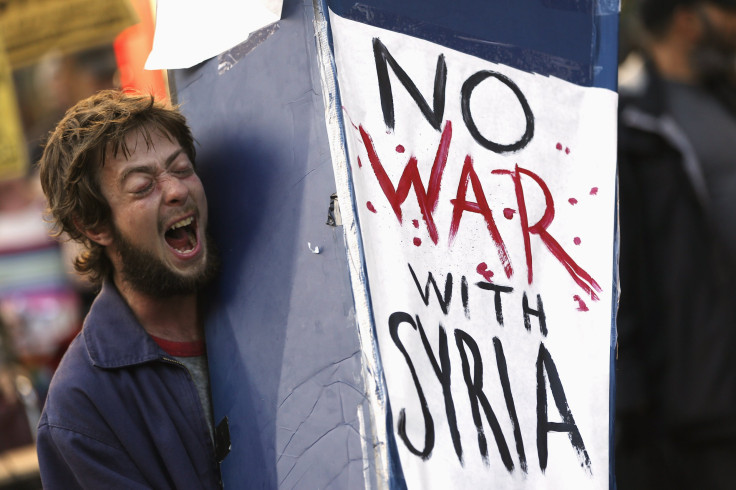Syria Military Strike: Is US Preparing For Unilateral Action Against Syria After UK Pullout?

President Barack Obama is mulling the prospects of a unilateral strike against Syria, after the UK’s parliament rejected military action in a narrow vote, on Thursday, and isolating the U.S. in the international community in the stance against Bashar Assad's regime in Syria.
French President Francois Hollande and German Chancellor Angela Merkel, who have offered support to military strike in Syria, urged delaying any operation until after the United Nations Security Council reviews evidence collected to establish the use of chemical weapons in Syria -- a process that could take days or weeks.
Obama administration officials, who spoke to congressional leaders on Thursday night, said the president will protect the national security interests of the U.S.
“As we’ve said, President Obama’s decision-making will be guided by what is in the best interests of the United States,” Caitlin Hayden, spokeswoman for the National Security Council said, in a statement following the UK vote, according to news reports. “He believes that there are core interests at stake for the United States and that countries who violate international norms regarding chemical weapons need to be held accountable.”
Meanwhile, Pentagon officials said military action can occur “within days” and that the U.S. is “past the point of no return,” according to NBC News, even as Russia -- Syria’s key ally -- started to move warships to the eastern Mediterranean Sea, according to Interfax news agency and Serbian media.
“The known situation that is currently observed in the eastern part of the Mediterranean Sea requires us to make certain adjustments to our naval group. A large anti-submarine ship of the Northern Fleet is expected to join it within the next few days,” a source in the Russian armed forces was quoted as saying in a report by inSerbia website, alluding to the rising global tensions regarding Syria.
The State Department, on Thursday, insisted that Obama had not yet made a decision yet about a response, adding that the U.S. will continue consulting with close allies, including the UK, “as the President weighs his options.”
State Department spokesperson Marie Harf said Secretary of State John Kerry spoke to French Foreign Minister Laurent Fabius, Polish Foreign Minister Radosław Sikorski, and Qatari Foreign Minister Khaled al-Attiyah on Thursday, and “made the consistent and clear point in all of these calls that the Assad regime used chemical weapons against their own people and needs to be held accountable.”
© Copyright IBTimes 2024. All rights reserved.












